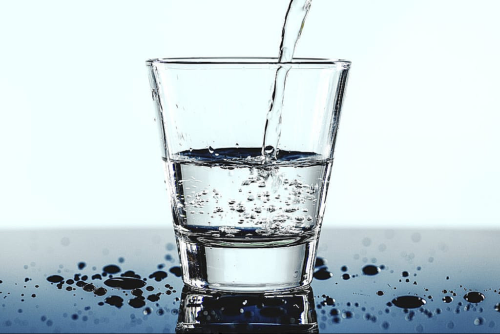When Antoinette Wilson, 69, had a dry mouth, felt tired, headachy, and experienced short spurts of dizziness throughout her workday, she sloughed off the symptoms. “How do you spell s-t-u-p-i-d? ME,” she jokes. “Luckily, I was at work when I finally passed out and was taken to a hospital. The diagnosis was dehydration. I could have really caused some serious health issues for myself, especially since I am diabetic. I will never jeopardize my health again by ignoring symptoms that are new to me. Now, I am drinking more than enough fluids. Lightning does not have to strike me twice!”
Dehydration is serious business, especially for older adults, and should never be taken lightly. Seniors, Blacks, and Hispanics are especially susceptible to dehydration. The elderly are among those most vulnerable to dehydration, according to doctors and hospitals. And African American and Hispanic adults are more likely to be dehydrated than whites.
What is dehydration?
Dehydration occurs when you lose more fluids than you actually take into your system. Since the human body is comprised of 75 percent water, we simply cannot exist without this liquid. We lose water when we sweat, breathe, urinate, and defecate, replenishing the fluids when we drink.
Symptoms of dehydration
- Thirst
- Dark yellow and strong-smelling urine
- Dizziness or lightheadedness
- Feeling tired
- Dry mouth, lips, eyes
- Urinating very little
- Headache
Symptoms of extreme dehydration
- Lack of sweating
- Sunken eyes
- Shriveled and dry skin
- Increased heart rate
- Delirium
- Fever
- Low blood pressure
- Unconsciousness
- Confusion (this is most noticeable in seniors)
If you suspect dehydration in an elderly loved one, you can check for a decrease in skin turgor by pulling up the skin on the back of the hand for a few seconds; if it does not return to normal almost immediately, the person is dehydrated.
Who gets dehydrated?
Anyone can become dehydrated, young and old, but some folks are more prone to it:
- Older people are less able to conserve water in the body and may also suffer from conditions or take meds that can increase their risk of dehydration
- People who suffer from illnesses like diabetes, dementia, and kidney disease; seniors who have mobility issues and cannot easily access water to quench their thirst
- If you’re an athlete, work or exercise outdoors when it is hot and humid, dehydration can occur because the body’s temperature can increase, and as a result, there is a need for more fluids
- Certain medications like diuretics and a few blood pressure meds can make you urinate more, which can lead to dehydration
- Vomiting can cause a loss of fluids
- Diarrhea is the most common cause of dehydration and causes the body to excrete way too much fluid
Complications
Hydration is vital for every single bodily function and process to remain active and healthy. Depriving the body of fluids can lead to severe complications and can even be life-threatening in some cases.
- Seizures
- Kidney issues like urinary tract infections, kidney stones, or eventually kidney failure
- Low blood volume shock which is life-threatening
- Heat-related injury resulting in cramping, exhaustion, or heat stroke
- Blood clotting issues
Treatments
When dehydration is diagnosed, replenishing lost fluids is the way to go. Usually, when someone is dehydrated, a physician recommends consuming clear liquids like water, broths, frozen water or ice pops, or sports drinks like Gatorade. If the dehydration is related to an illness, a doctor should treat the underlying condition in order to prevent dehydration. If a patient has diarrhea, they might be given an anti-diarrheal medication. If someone is vomiting, an anti-emetic drug can help them stop.
Severe cases of dehydration will require intravenous fluids to fulfill the body’s need for fluids.
How to prevent dehydration
The key to preventing dehydration is consuming fluids and foods with a high concentration of water, like fruits and veggies. Beverages such as coffee, tea, soda, and alcohol are not recommended as cures for those who are dehydrated, even though these liquids can hydrate, they only do so to a very small extent.
Seniors should be carefully watched to ensure they are consuming enough fluids because they are prone to dehydration. Dehydration in older adults is a frequent cause of hospitalization (one out of ten most frequent admitting diagnoses for Medicare hospitalizations according to the Health Care Finance Administration), and it can be life-threatening if severe.
If your loved one is in a nursing home, make sure that there is a hydration program in place that includes assisting them with drinking fluids not only with meals but in-between as well!
How much fluids are enough to prevent dehydration? The Institute of Medicine determined that an adequate intake for men is roughly 3 liters (about 13 cups) of total beverages a day. The proper intake for women is 2.2 liters (about 9 cups) of total beverages a day.











